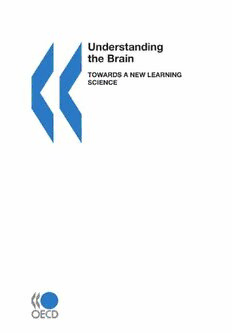
Understanding the brain PDF
114 Pages·2002·48.794 MB·English
Most books are stored in the elastic cloud where traffic is expensive. For this reason, we have a limit on daily download.
Preview Understanding the brain
Description:
Over the last ten years, advances in non-invasive brain scanning and imaging technologies have opened up new methods of work for researchers. More has been learned about the functioning of the brain in the past decade than in all the preceding centuries. Research into the brain’s capacity to develop, learn, and change throughout the will have profound implications for learning and education.The new "science of learning" sheds light on how the brain produces perception, memory, and language, and on the importance of the early and late years in successful lifelong learning. It provides, among other things, insights into how to improve reading and mathematical skills, and highlights the significance of the distinction between nature and nurture in learning and brain development.Understanding the Brain focuses on the importance of adopting a transdisciplinary approach, involving cognitive neuroscience, psychology, education, and health. When teachers, the medical profession, and scientists work together, there is real hope for early diagnosis of, and appropriate intervention in, conditions such as dyslexia or Alzheimer’s disease.These, and many other exciting issues, are discussed in this book.
See more
The list of books you might like
Most books are stored in the elastic cloud where traffic is expensive. For this reason, we have a limit on daily download.
